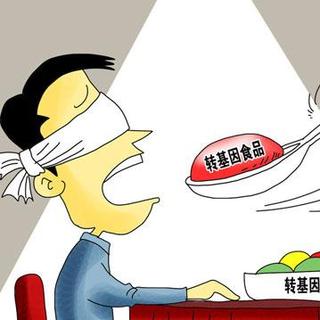
介绍:
China's vice-minister of agriculture has announced the government is planning to implement strict labeling provisions for genetically modified products. But, it's not the only country concerned about this method of food production. Australia is well-known for its strict labeling policy on GM foods, which was implemented over a decade ago. Doris Wang looks at what effects the policy has had in Australia and what are the possible implications of the planned provisions on the future of China's GM food industry.
Genetically modified or genetically engineered foods has been a hotly debated topic in many countries around the world. As the GM market continues to expand in China, the benefits and detriments of GM foods are being widely discussed in this country as well.
At China People's Political Consultative Conference in March, vice-minister of agriculture Niu Dun announced that China is working on an evaluation system for genetically modified food in order to assess its impact on the environment and human health. And because of public doubts about GM safety, Niu says strict labeling policies will also be implemented.
China isn't the only country who has concerns regarding genetically engineered foods. Australia has one of the strictest regulations. University of Melbourne professor Richard Roush says by requiring labels on products that use as little as one percent GM material, the Australian government may have deluded the public's opinion on GM foods.
"It has definitely increased concerns among consumers that if the government was required to label this, it implies that there is something to be concerned about. It implies that there's something dangerous or there's some special reason the GM foods are labeled. And many consumers interpreted in that way. It tends to attack the credibility of GM crops."
The GM foods industry is still in its early stages in China. So far, only GM cotton and papaya are allowed to be planted and commercialized. But, it is quickly gaining in popularity. Last year, China planted almost four million hectares of GM cotton and six thousand hectares of papaya.
However, not everybody agrees that genetically engineered food is the future of China's agricultural industry. Philip McMaster is the founder of the World Sustainability Organization. He said GM products may even be dangerous for the country's food supply.
"This is playing Russian Roulette with biology. It's not natural breeding. That artificial mixing of DNA to create a genetically modified product can't be anything but dangerous because we just simply don't know the end results."
But, according to Australian Roush, GM crops have many benefits.
"All the crops in widespread use today were developed to primarily control pest and weeds. So in general, the effects of these have been reducing pesticide use, increase yields and allow people to use much higher level of tillage in agriculture which has multiple benefits in reducing soil erosion carbon emissions to the atmosphere."
Although China had a successful harvest last year, the country faces a decline in arable land amid urbanization, bad weather and pollution from fertilizers and pesticides. To improve agricultural products, China has increased its funding in GM technology development.
However, according to McMaster, by relying more on genetic engineering, China would loose its sovereignty on food production to international corporations.
"I don't think any average Chinese would want to loose control over the ability to feed themselves. We can't just go all the high-tech way with GMO and believe the future is going to be bright with technology. I think we have to come back to our relationship with the earth and farming without the chemicals and without the genetically modified things."
Despite the interest in the technology, the GM production of China's stable food, rice, is still strictly prohibited.
Roush says that passing the GM labeling regulation in China might have the same effect on consumers as it did in Australia. He suggests that in addition to labeling genetically-modified products, government officials should also look at other foods that he believes are truly harmful to humans.
"There are artificial foods in our food supply that have been demonstrated to be unsafe for human health, yet, relatively little attention have been paid to them. It's transfats. We know that they're associated with heart disease. And in most areas, they get far less labeling attention than GM crops do which is quite striking how we've been misled about real human safety risks."
As for McMaster, he believes that the labeling will allow people to make a more informed choice on what they are eating.
"I think labeling is extremely important because it's about informing people that here's a selection of products, this one and this one do not have GMO, this one does, you chose."
The Chinese government has yet to announce when the GM logos will be implemented. The industry is still in its infancy in China and only time will tell whether it will succeed in a nation of 1.3 billion consumers.
大家还在听

